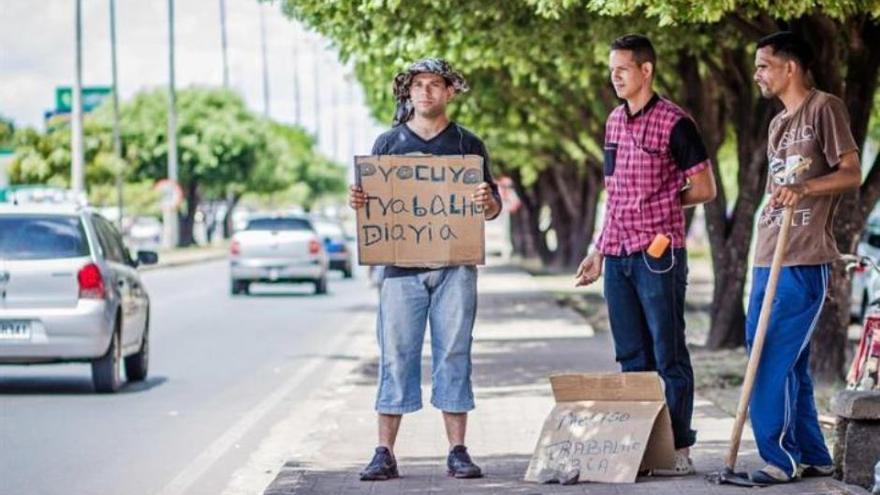
![]() EFE / 14ymedio, Havana, 11 August 2018 – The pressure of migratory inflows from Venezuela on the countries of the region led Ecuador, this Wednesday, to declare a state of institutional emergency in the provinces of Garchi, Pichincha and El Oro, while in Brazil this week the authorities closed the border with its northern neighbor for 20 hours after a court order, specifically in the state of Roraima, the main gateway for Venezuelans fleeing the economic, political, and social crisis of their country.
EFE / 14ymedio, Havana, 11 August 2018 – The pressure of migratory inflows from Venezuela on the countries of the region led Ecuador, this Wednesday, to declare a state of institutional emergency in the provinces of Garchi, Pichincha and El Oro, while in Brazil this week the authorities closed the border with its northern neighbor for 20 hours after a court order, specifically in the state of Roraima, the main gateway for Venezuelans fleeing the economic, political, and social crisis of their country.
In the case of Ecuador, a country with which Venezuela does not share a border, a statement from the Foreign Ministry indicated that “in recent days, the flow reached 4,200 entries daily”. The fear that the new Colombian president, Iván Duque, might close the border, has intensified the arrival of Venezuelan immigrants in recent days in search of a destination in the south of the continent.
In 2017, 288,005 Venezuelans entered Ecuador, a figure that is likely to be surpassed this year, judging by the crowds on the border between the two countries.
The main gateway to Ecuador is the Rumichaca pass, on the border with Colombia, totally congested in recent days. From there many of migrants move to the capital, Quito, with the intention of continuing their journey to the south and crossing into Peru, and even reaching Chile.
The state of institutional emergency will last throughout the month of August, although it could continue according to the circumstances at the border crossing points.
According to a statement from the Ministry of Health, it will “strengthen medical care with a greater number of doctors.” The deployment will include a group of social workers and psychologists, especially for vulnerable groups (children, adolescents and women), as well as humanitarian aid to meet primary needs.
Meanwhile, in Brazil, the differences between the government of Roraima and the Federal government caused the temporary closure of the border. The lawsuit filed with a federal judge by the local authorities, who have seen about 50,000 Venezuelans arrive in the past year, was later annulled by the Federal Regional Court of the First Region.
“Closing the border means not recognizing the immigrant as equal to the Brazilian,” said the Court, while the country’s Minister of Security, Raúl Jungmann, hinted that the request for border closure suggested by the authorities of Roraima might be linked to internal political issues of that region, ahead of the elections that will be held this coming October in Brazil.
Jungmann considered, on a personal basis, that the decision to request the closure of the border may have had some “toxic interference of the elections,” which he affirmed would be “intolerable,” since “that issue can not be included in the electoral contest. ”
The minister pointed out that, since the government declared this past February a “situation of vulnerability” due to the massive influx of Venezuelans, the financial resources directed to Roraima have increased, in order to alleviate the situation.
Likewise, in cooperation with international entities, such as the United Nations High Commissioner for Refugees (UNHCR), camps have been set up which welcome Venezuelans and a program initiated to move Venezuelans wishing to relocate to other regions of the country, through which 820 immigrants have been placed in cities such as Sao Paulo, Cuiabá, Brasilia and Rio de Janeiro.
Translated by Wilfredo Díaz Echevarria
_______________________
The 14ymedio team is committed to serious journalism that reflects the reality of deep Cuba. Thank you for joining us on this long road. We invite you to continue supporting us, but this time by becoming a member of 14ymedio. Together we can continue to transform journalism in Cuba.
